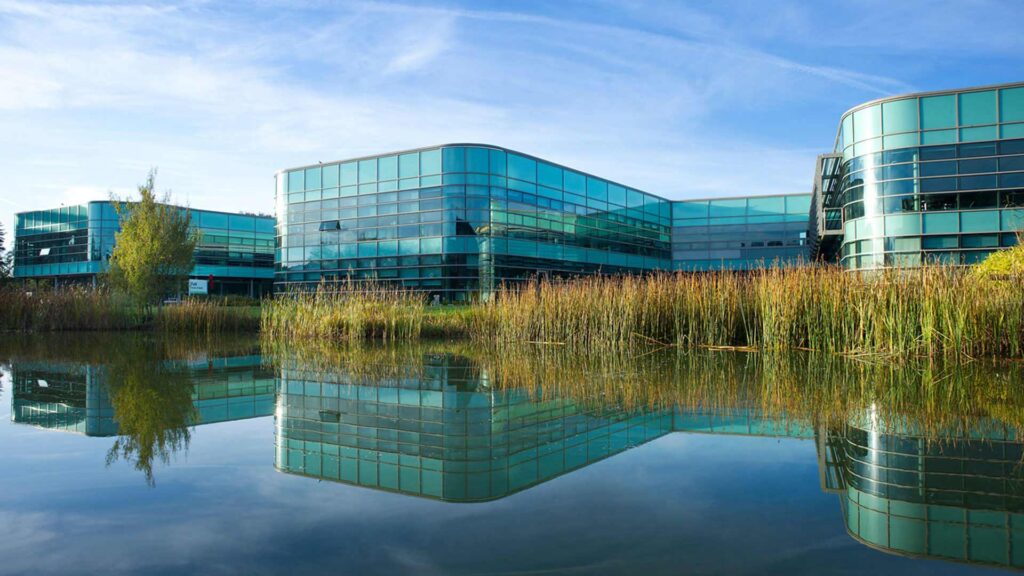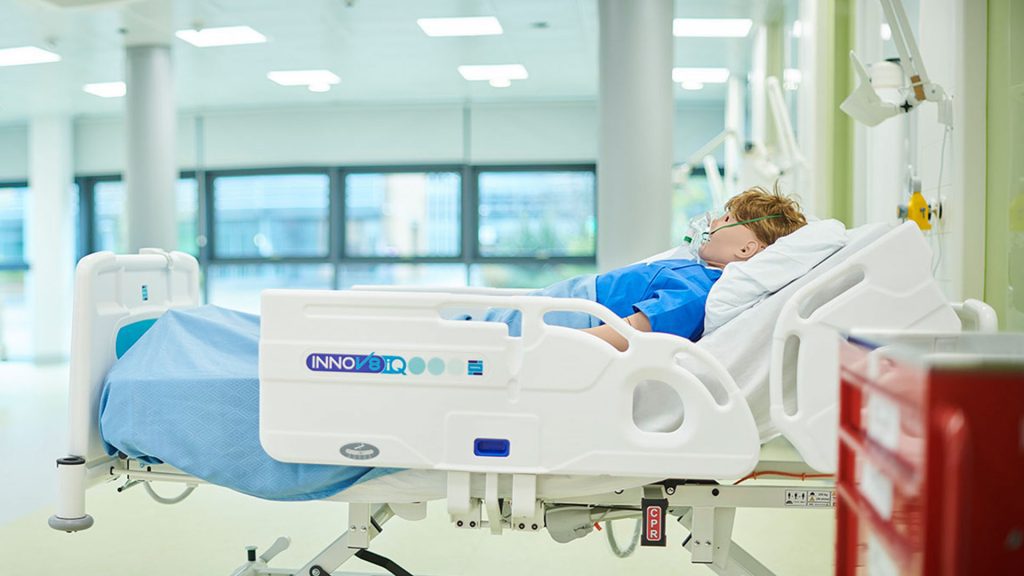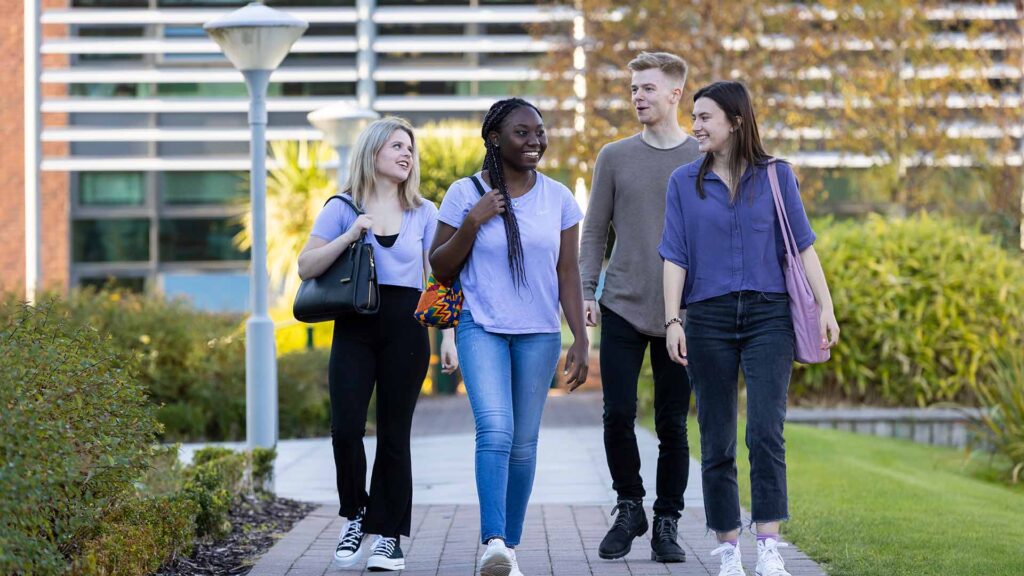MSc Physician Associate Studies course preparation
To help you feel prepared for your MSc Physician Associate Studies programme, we’ve put together a list of key department contacts and how to connect with them, where you can expect to learn and other tips on how to prepare for your transition to postgraduate study. Read on to find out more.
Important: Occupational Health
You’ll be allocated an Occupational Health (OH) appointment at the clinic being held at our Ormskirk campus. The clinics will be held within the first weeks of when you start the course. More information will be provided during your Induction Week.
Please remember that it’s a condition of entry to the programme that you’re cleared and immunised by OH. If you don’t meet this requirement your place on the programme could be jeopardised. It’s also important to remember that if you’re not fully cleared by OH, you won’t be able to fully enrol on your course. This could then mean you can’t access your maintenance loan via Student Finance England.
So, to make sure this goes as smoothly as possible, you’ll need to provide details of your immunisation record to the OH Team when you complete the questionnaire.
If you’re unable to attend your allocated time slot, you must contact us, preferably giving at least 24 hours notice. If you’re unable to give 24 hours notice or have an issue on the day of your appointment, please email [email protected] or call the team on 01695 650946. The OH and School team will try to provide another appointment, but this is likely to be at the OH department based in Wigan and you will need to make sure that you attend.
Some of our placement settings may also require you to be fully vaccinated against Covid-19 as a condition of placement. If you’re not vaccinated or are part way through vaccination, please let us know as soon as possible. It’s likely that this will be included on your immunisation record which will be sufficient to confirm your clearance.
We routinely collect data on short notice cancellations and non-attendance. Unfortunately, if this happens more than once, the University will charge you the full cost of the appointment.
Where your learning will take place:
When you’re on campus, your learning will mainly take place in our Faculty of Health, Social Care and Medicine. Here you’ll find outstanding facilities for the education and training of health and social care professionals.
You’ll also spend time on placement, where you can put your learning to the test.
In here, you’ll find:
- Large lecture theatres – where you’ll learn the main theories and concepts for each module.
- Small group teaching rooms – where you can discuss what you’ve heard in your lectures and complete activities related to your lecture.
- Clinical Skills and Simulation Centre – where you can get hands on with equipment and practise in a safe environment.
- Smaller tutorial space – for a more intimate and personalised learning session.

How to prepare for your transition to postgraduate study
At Edge Hill, we host a range specialist UniSkills workshops for all of our applicants to access. They’re particularly useful if you are about to enrol at Edge Hill University, or just looking to refresh your skills for the semester ahead.
We know that you’re aware that you’ll be putting in hard work to study for your course when you arrive. But it’s not just academic skills that you’ll be using once you’re here. And there are a few skills that you might want to refresh now so that you’re a pro when it comes to the start of your studies in September.
- Time management – you may have conflicting deadlines as well as other personal activities to consider. So you’ll want to make sure that you manage your time well so that you can do everything you’d like to do. But, there may be times when you can’t do it all but managing your time well will help you to prioritise which activities are necessary and which you have to miss out on.
- Critical thinking – it’s important to show your true understanding of the topics you cover in lectures. And for some of this, you’ll need to critique the work you’re studying in a professional, academic manner. You may already be completing tasks like this in your current studies, so university will be a chance to enhance these skills. Don’t be afraid to share your opinions.
- Teamwork – some modules may require you to work with others on your course to complete tasks and discuss analytical findings.
- Independent work – in contrary to the above, it’s also important to be able to work independently. The majority of your work will need to be submitted individually so it’s important to take ownership of your learning. And if there is something that you don’t understand, make sure to ask your tutor.
- Self-motivation – you’ll be encouraged to work more independently which means that you won’t have a teacher that chases you up to make sure you’ve completed a piece of work on time. So it’s important that you hold yourself accountable and make the decision to put the work in.
To remind yourself of your modules, please visit your course page:

If you’d like to complete any preparatory reading, you can search for any reading related to your course on our online reading list.
Materials you may need:
It’s a good idea to wait until you start your course to buy any books or specific equipment as your tutor will be able to provide more details about what is essential. And our library may be able to provide you with reading materials. But there are a few other things you may want to consider too:
- Academic diary – a staple to help you with your time management as well as upcoming tasks in both your academic and personal life.
- Notepads and pens – some people prefer to do this digitally rather than on paper, whichever you prefer, make sure you have the resources to complete any notes you’d like to take. If you like to write on a physical notepad, consider an A5 size so that it’s easier to carry around.
And of course, anything else that you like to use for your academic studies, like highlighters, flashcards and folders.
Your clinical placements
The programme structure means that half of the course will be spent in clinical placement. Clinical placements will differ allowing you to explore clinical specialities and introduce you to the diversity of roles, contexts and patients.
You’ll be required to document and reflect on these placements and be introduced to the portfolio which is central to medical training and practice. Sessions will be provided in the programme on how to do this.
Students are expected to travel to placement within reasonable distance.

Making friends

We understand that sometimes it can feel daunting when you join somewhere new for the first time. But we’re here to reassure you that whatever you’re feeling is normal and perfectly ok. Once you arrive, you’ll be able to find out what activities and clubs/societies are available for you to get involved with. These are the perfect way to meet like-minded individuals who share your passions. Make sure to use our Student Life Portal to keep up to date with all the student events happening at Edge Hill.